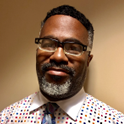
As educators, it is important that we teach empathy. It is imperative that we teach our students to become wise and critical thinkers, investigating information for themselves and making it a point to talk to the voiceless, balancing the yearning of the voiceless with the highest values from our sacred traditions.
The prophets in the Abrahamic traditions spoke truth to power, delivering God’s word to the people. Like their forebears, modern-day prophets like the Rev. Dr. Martin Luther King, Rabbi Abraham Heschel, Malcolm X, Dietrich Bonhoeffer, and Dorothy Day spoke on behalf of the underdogs and challenged society to move toward social justice and relinquish its idols.
An idol is that which stands beside God and is not questioned. In today’s society, the mainstream media is not questioned. The current script they present for people to follow is that we should all be scared. The theme of the mainstream media is FEAR.
The truth of the matter is that COVID-19 has a 98% recovery rate, yet the media seems to focus exclusively on how many people get, and die from, the virus. Why isn’t there an equal focus on how many people recover?
The prophets from the past were HEALERS. They were not people that taught people to fear. They taught and cultivated wisdom and critical thinking; problem solving that would bring out the best in people. The Rev. Dr. Martin Luther King, Jr. said, “It’s human to fear, but it’s INHUMAN to let fear control you.”
How did we get here? We have an education system devoid of spirituality; devoid of morality. The 20th century prophet Mahatma Gandhi listed one of the seven social sins as “education without character.” Where are today’s prophets that will call us to higher ground and be torchbearers for moral excellence?
We must challenge our students to get involved in government and be engaged in solving critical issues. We should challenge people to think for themselves while being guided by the SUBLIME. Young people must be taught to question and critically analyze everything. They need to fact-check everything and question the motivations and even valid points of experts. It is dangerous to blindly follow anyone. Particularly at a time like this, our students must be prepared for wisdom and the highest level of critical thinking, asking questions like the following:
- How do we promote justice and healing during times of a pandemic?
- What is a pandemic? Is this a pandemic?
- Are there accurate numbers being listed for death counts? Why are hospitals being given extra money for labelling patients as having COVID-19, and does this affect the accuracy of the count?
- What might medical work look like divorced from corporate control? How might the history of prophetic work – healers healing without desire for money – and public hospitals, in which medical service and money were separated, help us envision such medical work?
- What is the best way to treat COVID-19 patients? What places around the world have had the best treatment? Are there outside-of-the-box ways to treat this?
- What does the number of deaths look like in the states and countries that have locked down versus those that have not locked down?
What’s more, young people need to be taught history radically differently than how it is currently taught – history should be taught as a current event. The Bubonic Plague killed a third of the European population because it also occurred at the time of a depression. When faced with epidemics coupled with economic collapse, there is potential for apocalyptical conditions. What does the Bubonic Plague teach us today? In what ways were the Bubonic Plague and COVID-19 similar? In what ways were they different? What does COVID-19 look like if there is a depression? Which is more important to save – the health of the people or the economy?
Many of us say phrases like, “When it gets back to normal….” How about if it NEVER gets back to normal? Was “normal” working? If it is determined that “normal” is what we want to return to, how do we ensure that it happens?
Young people are the leaders of tomorrow – whatever that looks like. They need to be given an education better than ours. They deserve an education that cultivates character, that stands on the values of the prophets of yesterday and today and critically analyzes all that it is set before them. The idolatry must stop. Students must question ‘sacred cows’ in order to cooperatively problem solve in the highest possible way. No one and no thing is above questioning. The government can be questioned. The media can be questioned. Medical experts can be questioned. The Constitution can be questioned.
Students need to study the events of history that are most like what we are going through and critically examine what the lessons of those historical events are and what they teach us today. They must problem solve with an empathy for those at the bottom of society.
 Ted Smith is a history teacher at Patterson High School, a public high school located in the Hopkins-Bayview neighborhood in Baltimore, Maryland. Smith was a member of the 2019-20 ICJS Teachers Fellowship.
Ted Smith is a history teacher at Patterson High School, a public high school located in the Hopkins-Bayview neighborhood in Baltimore, Maryland. Smith was a member of the 2019-20 ICJS Teachers Fellowship.
Opinions expressed in blog posts by the ICJS Teacher Fellows are solely the author’s. ICJS welcomes a diversity of opinions and perspectives.